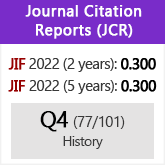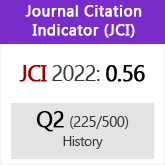Remembering the Gender and Sexual Archive of the Black Diaspora in Tunisia: a Decolonial Approach to Historical Anthropology
DOI:
https://doi.org/10.3989/chdj.2023.025Keywords:
Gender, Sexuality, Slaves/Enslaved, Black Diaspora, Tunisia, DecolonialAbstract
The available studies on the cultural history of the Black diasporas in the Ottoman Mediterranean have focused on religious and other cultural manifestations, leaving out the inquiry about notions and practices related to gender and sexuality. Taking a cue from works on the Black Atlantic and the African continent, this article investigates the notions of gender and sexuality underlying the sub-Saharan worldviews and offers a template to interpret the subjecthood of enslaved sub-Saharans in the Maghribi diaspora. The first part of the essay lays out a historical contextualisation of the Black diaspora in early nineteenth-century Tunis. Then I take the reference to the practice of al-musāḥaqa (lesbianism) among the Black slaves in an 1808 Arabic manuscript as a starting point to investigate, by surveying different anthropological studies, whether al-musāḥaqa can be thought of as pertaining to the archive of sexual epistemology which the enslaved would have taken to Tunisia and, more importantly, to enquire into how we can understand it within a non-anthropocentric historical cosmology-which, ultimately, can contribute to the necessary decolonisation of feminist and queer studies, and history and anthropology more generally.
Downloads
References
Abaka, E. (2011) "Trades, Salves, and Soldiers. The Hausa Diaspora in Ghana (Gold Coast and Asante) in the Nineteenth and Early Twentieth Centuries." In: T. Falola and A. Adisa Usman, eds. Movements, Borders, and Identities in Africa. Rochester, NY: University of Rochester Press, pp. 185-199.
Abun-Nasr, J. M. (1987) A History of the Maghrib in the Islamic Period. Cambridge; New York: Cambridge University Press. https://doi.org/10.1017/CBO9780511608100
Adam, B. (1985) "The Structural Foundations of the Gay World." Comparative Studies in Society and History 27 (4), pp. 658-671. https://doi.org/10.1017/S0010417500011701
Allen, A. R. (1962) Leo's Travels in the Sudan: Being the Seventh Book of Leo Africanus Simplified, Abridged and Done into Modern English from the Translation of John Pory. London; Ibadan; Nairobi: Oxford University Press.
Altman, D. (1996) "On Global Queering." Australian Humanities Review. http://australianhumanitiesreview.org/1996/07/01/onglobal-queering/.
Amadiume, I. (1987) Male Daughters, Female Husbands: Gender and Sex in an African Society. London: Zed Books.
Amer, S. (2009) "Medieval Arab Lesbians and Lesbian-Like Women." Journal of the History of Sexuality, 18 (2), pp. 215-236. https://doi.org/10.1353/sex.0.0052 PMid:19768852
Angelino, H., and Shedd, Ch. L. (1955) "A Note on Berdache." American Anthropologist, 57 (1), pp. 121-126. https://doi.org/10.1525/aa.1955.57.1.02a00130
Asante, M. K. (1998) Kemet, Afrocentricity and Knowledge. Trenton, NJ: Africa World Press.
Bédoucha, G. (1987) L'eau, l'ami du puissant. Une communauté oasienne du Sud-tunisien. Paris, Éditions des Archives Contemporaines.
Blackwood, E. (1984) "Sexuality and Gender in Certain Native American Tribes: The Case of Cross-Gender Females." Signs: Journal of Women in Culture and Society, 10 (1), pp. 27-42. https://doi.org/10.1086/494112
Blackwood, E., and Wieringa, S. (1999) Female Desires: Same-Sex Relations and Transgender Practices across Cultures. New York: Columbia University Press.
Bloch, M. (1998) How We Think They Think: Anthropological Approaches to Cognition, Memory, and Literacy. Oxford: Westview Press.
Boddy, J. (2007) Civilizing Women: British Crusades in Colonial Sudan. Princeton; Oxford: Princeton University Press. https://doi.org/10.1515/9780691186511
Bolin, P. E. (2009) "Imagination and Speculation as Historical Impulse: Engaging Uncertainties within Art Education History and Historiography." Studies in Art Education, 50 (2), pp. 110-123. https://doi.org/10.1080/00393541.2009.11518760
Booth, M. (2003) "New Directions in Middle East Women's and Gender History." Journal of Colonialism and Colonial History, 4 (1). https://doi.org/10.1353/cch.2003.0006
Bruzzi, S., and Zeleke, M. (2015) "Contested Religious Authority: Sufi Women in Ethiopia and Eritrea." Journal of Religion in Africa, 45, pp. 37-67. https://doi.org/10.1163/15700666-12340028
Burton, A. (2010) "Foreword: 'Small Stories' and the Promise of New Narratives." Contesting Archives: Finding Women in the Sources, Chaudhuri, N., Katz, S. J., et al (eds.) Urbana: University of Illinois Press.
Chakrabarty, D. (2000) Provincializing Europe: Postcolonial Thought and Historical Difference. Princeton, NJ: Princeton University Press.
Christensen, J. B. (1954) Double Descent Among the Fanti. Edited by Genevieve A. Highland. First Edition. New Haven: Human Relations Area Files.
Crapanzano, V. (1973) The Ḥamadsha: A Study in Moroccan Ethnopsychiatry. Berkeley: University of California Press. https://doi.org/10.1525/9780520337206 PMid:4745003
Crapanzano, V. (1981) Tuhami: Portrait of a Moroccan. Chicago: University of Chicago Press. https://doi.org/10.7208/chicago/9780226191461.001.0001
Cuffel, A. (2005) "From Practice to Polemic: Shared Saints and Festivals as 'Women's Religion' in the Medieval Mediterranean." Bulletin of the School of Oriental and African Studies, 68 (3), pp. 401-419. https://doi.org/10.1017/S0041977X05000236
Curtis, E. E. (2014) The Call of Bilal: Islam in the African Diaspora. Chapel Hill: The University of North Carolina Press.
Dangler, J. (2015) "Expanding Our Scope: Nonmodern Love and Sex in Ibn Ḥazm al-Andalusī's Ṭawq al-ḥamāma and Aḥmad ibn Yūsuf al-Tīfāshī's Nuzhat al-albāb fīmā lā yūjad fī kitab." Africa Today. 61, pp. 13-25. https://doi.org/10.2979/africatoday.61.4.13
El Hamel, C. (2013) Black Morocco: A History of Slavery, Race, and Islam. Cambridge; New York: Cambridge University Press. https://doi.org/10.1017/CBO9781139198783 PMid:23024220
El Mansour, M., and Harrak, F. (2000) "Introduction." In: A Fulani Jihadist in the Maghrib: Admonition of Ahmad Ibn al-Qadi atTimbukti to the Rulers of Tunisia and Morocco. Rabat: Ma'had al-Dirasat al-Ifriqiyya.
Ennaji, M. (1999) Serving the Master: Slavery and Society in Nineteenth-Century Morocco. Translated by Seth Graebner. Basingstoke; New York: Macmillan; St. Martin's Press.
Epprecht, M. (1998) "The 'unsaying' of Indigenous Homosexualities in Zimbabwe: Mapping a Blindspot in an African Masculinity." Journal of Southern African Studies Journal of Southern African Studies, 24 (4), pp. 631-651. https://doi.org/10.1080/03057079808708594
Evans-Pritchard, E. E. (2003) "Sexual Inversion among the Azande." In: S. LaFont, ed. Constructing Sexualities: Readings in Sexuality, Gender, and Culture. Upper Saddle River, NJ: Prentice Hall, pp. 96-102.
Frank, L. (1851) Histoire de Tunis: précédée d'une Description de Cette Régence. Edited by J. J. Marcel. Paris: Firmin Didot Frères.
Goikolea-Amiano, I. (2020) "Gender and Sexuality in early 19thcentury Tunisia: a Decolonial Reading of Aḥmad b. al-Qāḍī al-Timbuktāwī's naṣīḥa on the sub-Saharan diaspora." Genre & Histoire, 25. https://doi.org/10.4000/genrehistoire.4983
González Vázquez, A. (2013) "Uso de la terminología del parentesco en Marruecos: humanos, jnun, matrimonio, afinidad y alianza." Ankulegi, 17, pp. 57-70.
González Vázquez, A. (2015) Mujeres, islam y alteridades en el norte de Marruecos. Barcelona: Edicions Bellaterra.
González Vázquez, A. (2017) "L'hospitalité des humains envers les junūn: micro-scènes rituelles et écosophiques chez les Jbala du Nord du Maroc." Révue d'ethnoécologie, Sup. 1, pp. 1-18. https://doi.org/10.4000/ethnoecologie.3097
Habib, S. (2007) Female Homosexuality in the Middle East: Histories and Representations. Routledge Research in Gender and Society. New York: Routledge.
Habib, S. (2013) "17. Sexualities and Queer Studies." In: J. Souad, ed. Women and Islamic Cultures. Schöningh: Brill, pp. 325-338. https://doi.org/10.1163/9789004264731_019
Hanson, J. H. (2017) "Fuuta Jalon." Encyclopaedia of Islam, THREE. Brill.
Herskovits, M. J. (1938) Dahomey, an Ancient West African Kingdom. New York City: J. J. Augustin.
Hunwick, J. (2004) "The Religious Practices of Black Slaves in the Mediterranean Islamic World." In: P. E. Lovejoy, ed. Slavery on the Frontiers of Islam. Princeton: Markus Wiener Publishers, pp. 149-171.
Hunwick, J., and Powell, E. T. (2002) The African Diaspora in the Mediterranean Lands of Islam. Princeton Series on the Middle East. Princeton, NJ: Markus Wiener Publishers.
Jankowsky, R. C. (2010) Stambeli: Music, Trance, and Alterity in Tunisia. Chicago: The Univ. of Chicago Press. https://doi.org/10.7208/chicago/9780226392202.001.0001
Kapchan, D. A. (2013) Traveling Spirit Masters: Moroccan Gnawa Trance and Music in the Global Marketplace. Middletown, CT: Weleyan University Press.
Karras, R. M. (2005) Sexuality in Medieval Europe: Doing unto Others. New York: Routledge.
Krige, E. J. (1974) "Woman-Marriage, with Special Reference to the Loυedu. Its Significance for the Definition of Marriage." Africa: Journal of the International African Institute, 44 (1), pp. 11-37. https://doi.org/10.2307/1158564
Lang, S. (2003) "Lesbians, Men-Women and Two-Spirits: Homosexuality and Gender in Native American Cultures." In: S. LaFont, ed. Constructing Sexualities: Readings in Sexuality, Gender, and Culture. Upper Saddle River, NJ: Prentice Hall, pp. 202-218.
Larguèche, A. (2002) Les ombres de la ville: pauvres, marginaux et minoritaires à Tunis (XVIIIème et XIXème siècles). Manouba: Centre de publication universitaire, Faculté des lettres de Manouba.
Larguèche, D. (1992) Marginales En Terre d'Islam. Collection Enjeux. Tunis: Cérès Productions.
Larsen, K. (2008) Where Humans and Spirits Meet: The Politics of Rituals and Identified Spirits in Zanzibar. New York: Berghahn Books.
Lorde, A. (2007) Sister Outsider: Essays and Speeches. Berkeley: Crossing Press.
Lovejoy, P. E., ed. (2009) Identity in the Shadow of Slavery. London; New York: Continuum.
Lovejoy, P. E. (2016) Jihād in West Africa during the Age of Revolutions. Athens: Ohio University Press. https://doi.org/10.2307/j.ctv224tvv3
Lydon, G. (2005) "Writing Trans-Saharan History: Methods, Sources and Interpretations across the African Divide." The Journal of North African Studies, 10 (3), pp. 293-324. https://doi.org/10.1080/13629380500336664
Machida, T. (1996) "Sisters of Mercy." In: M. Reinfelder, ed. Amazon to Zami: Towards a Global Lesbian Feminism. New York: Cassell, pp. 118-129.
Marouan, Maha (2016) "Incomplete Forgetting: Race and Slavery in Morocco." Islamic Africa 7 (2), pp. 267-271. doi: 10.1163/21540993-00702002 https://doi.org/10.1163/21540993-00702002
Meek, C. K. (1969) The Northern Tribes of Nigeria; an Ethnographical Account of the Northern Provinces of Nigeria Together with a Report on the 1921 Decennial Census. New York: Negro Universities Press.
Menin, L. (ed.). (2020) Racial Legacies: Historical and Contemporary Dynamics in West Africa, North Africa and The Middle East. Antropologia, 7 (1).
Mernissi, F. (1987) Beyond the Veil: Male-Female Dynamics in Modern Muslim Society. Bloomington: Indiana University Press.
Mintz, S. W., and Price, R. (1992) The Birth of African-American Culture: An Anthropological Perspective. Boston, Mass: Beacon Pr.
Montana, I. M. (2004) "Enslavable Infidels: Sudan-Tunis as a Classificatory Categorization for New Wave of Enslaved Africans in the Regency of Tunis." The Maghreb Review, 29 (1-4), pp. 78-98.
Montana, I. M. (2009) "The Bori Colonies of Tunis." In: B. A. Mirzai, I. M. Montana, and P. E. Lovejoy, eds. Slavery, Islam and Diaspora. Trenton, NJ: Africa World Press, pp. 155-167.
Montana, I. M. (2011) "Aḥmad Ibn Al-Qādī al-Timbuktāwī on the Bori Ceremonies of Tunis." In: P. E. Lovejoy, ed. Slavery on the Frontiers of Islam. Princeton: Markus Wiener Publishers, pp. 173-198.
Montana, I. M. (2013) The Abolition of Slavery in Ottoman Tunisia. Gainesville: University Press of Florida. https://doi.org/10.2307/j.ctvx0729p
Mrad Dali, I. (2014) "Minorités noires et esclavage au XIXe siècle dans l'historiographie du Maghreb. Quelles réalités à travers le prisme des absences et tendances éditoriales ?" NAQD, 3 (2), pp. 147-172. https://doi.org/10.3917/naqd.hs3.0147
Murray, S. O, and Roscoe, W., eds. (1998) Boy-Wives and Female Husbands: Studies of African Homosexualities. London: Macmillan.
Oboler, R. S. (1980) "Is the Female Husband a Man? WomanWoman Marriage among the Nandi of Kenya." Ethnology: An International Journal of Cultural and Social Anthropology, (1), pp. 69-88. https://doi.org/10.2307/3773320
Oyêwùmí, O. (2016) The Invention of Women: Making an African Sense of Western Gender Discourses. Minneapolis; London: University of Minnesota Press.
Peirce, L. (2009) "Writing Histories of Sexuality in the Middle East." The American Historical Review, 114 (5), pp. 1325-1339. https://doi.org/10.1086/ahr.114.5.1325 PMid:20425924
Robertson, C. C., and Klein, M. A. (1983) Women and Slavery in Africa. London: The University of Wisconsin Press.
Rupp, L. J. (2009) Sapphistries A Global History of Love between Women. New York; London: NYU Press.
Safi, A. al-, Lewis, I. M., and Hurreiz, S., eds. (1991) Women's Medicine: The Zar-Bori Cult in Africa and Beyond. Edinburgh: Edinburgh University Press for the International African Institute.
Scaglioni, M. (2020) Becoming the 'Abid: Lives and Social Origins in Southern Tunisia. Milano: Ledizioni.
Seligman, C. G, and Seligman, B. Z. (1932) Pagan tribes of the Nilotic Sudan. London: Routledge & sons.
Stayt, H. A. (1968) The Bavenda. London: Cass.
Temimi, A. (1994a) Etudes d'Histoire Arabo-Africaine - Dirāsāt fi al-tārīkh al-'arabī al-ifrīqī. Zaghouan, Tunis: Centre d'Etudes et de Recherches Ottomanes, Morisques, de Documentation et d'Information.
Temimi, A. (1994b) "Transcription of the manuscript Hatk alsitr 'ammā 'alayhi sudāni Tūnis min al-kufr by Aḥmad alTimbuktāwī." In : Etudes d'Histoire Arabo-Africaine - Dirāsāt fi al-tārīkh al-'arabī al-ifrīqī. Zaghouan, Tunis: Centre d'Etudes et de Recherches Ottomanes, Morisques, de Documentation et d'Information, pp. 74-86.
Tietz, L. (1996) "Homosexualität, Cross-Dressing und Transgender: Heteronormativitätskritische kulturhistorische und ethnographische Analysen" (PhD dissertation) (Bremen: Universität Oldenburg).
Timbukti, A. Ibn al-Qadi al-. (2000) A Fulani Jihadist in the Maghrib: Admonition of Ahmad Ibn al-Qadi at-Timbukti to the Rulers of Tunisia and Morocco. Edited by Mohamed El Mansour and Fatima Harrak. Rabat: Ma'had al-Dirasat al-Ifriqiyya.
Tinsley, O. N. (2018) Ezili's Mirrors: Imagining Black Queer Genders. Durham and London: Duke University Press.
Toledano, E. (2007) As If Silent and Absent: Bonds of Enslavement in the Islamic Middle East. New Haven: Yale University Press.
Tremearne, A. J. (1914) The Ban of the Bori. Demons and DemonDancing in West and North Africa. with ... Illustrations, etc. London: Heath, Cranton & Ouseley Ltd.
Valensi, L. (1967) "Esclaves chrétiens et esclaves noirs à Tunis au XVIIIe siècle." Annales. Économies, Sociétés, Civilisations, 22 (6), pp. 1267-1288. https://doi.org/10.3406/ahess.1967.421864
Valensi, L. (1986) "La tour de babel: Groupes et relations ethniques au Moyen-Orient et en Afrique du Nord." Annales. Économies, Sociétés, Civilisations, 41 (4), pp. 817-838. https://doi.org/10.3406/ahess.1986.283314
Wekker, G. (2006) The Politics of Passion: Women's Sexual Culture in the Afro-Surinamese Diaspora. Columbia University Press.
Wikan, U. (1982) Behind the veil in Arabia: women in Oman. London: The John Hopkins University Press.
Published
How to Cite
Issue
Section
License
Copyright (c) 2023 Consejo Superior de Investigaciones Científicas (CSIC)

This work is licensed under a Creative Commons Attribution 4.0 International License.
© CSIC. Manuscripts published in both the printed and online versions of this Journal are the property of Consejo Superior de Investigaciones Científicas, and quoting this source is a requirement for any partial or full reproduction.All contents of this electronic edition, except where otherwise noted, are distributed under a “Creative Commons Attribution 4.0 International” (CC BY 4.0) License. You may read here the basic information and the legal text of the license. The indication of the CC BY 4.0 License must be expressly stated in this way when necessary.
Self-archiving in repositories, personal webpages or similar, of any version other than the published by the Editor, is not allowed.

















